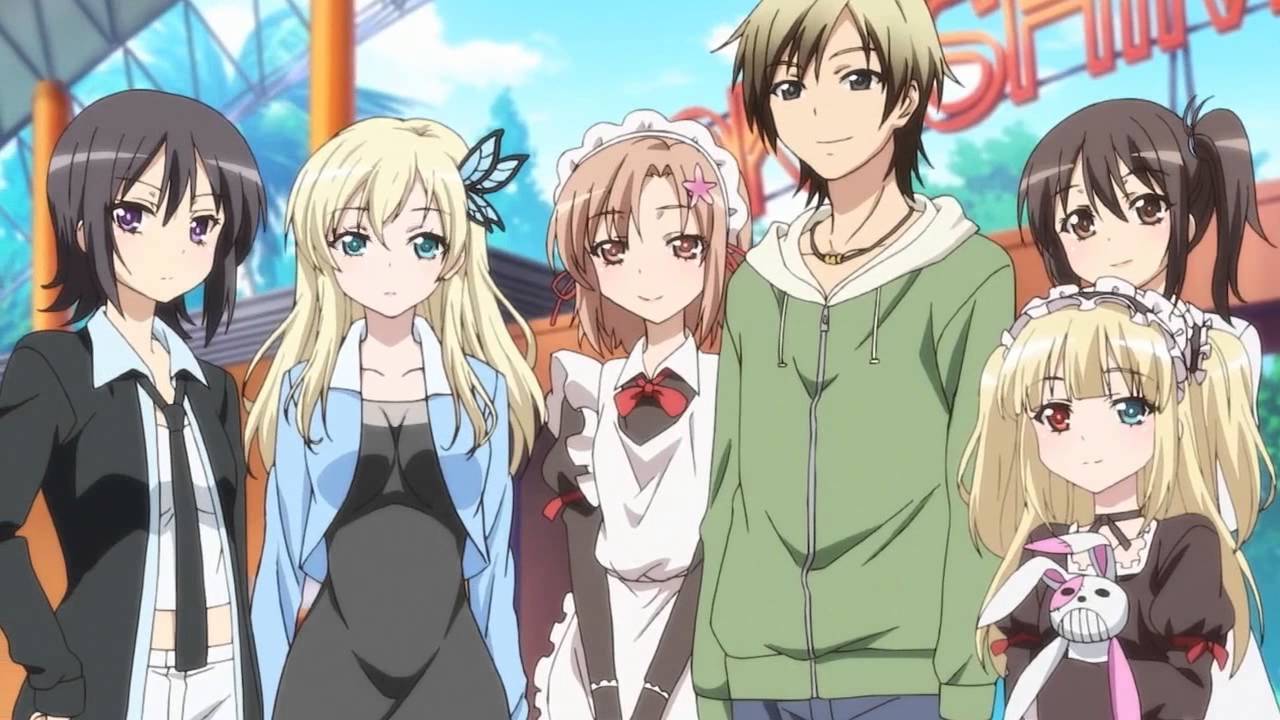
A (human) index that likes to code
Also drinks way too much coffee ![]()
Boku wa Tomodachi ga Sukunai
Published Apr 18, 2021

Boku wa Tomodachi ga Sukunai (僕は友達が少ない)
7★
After enjoying Oregairu, I still had some time before all the Winter 2021 anime finished airing, so I decided to pick up “Boku wa Tomodachi ga Sukanai” as an apt alternative; this review covers both Season 1 and Season 2 (NEXT).
In the Oregairu review, I have mentioned that I disliked romance anime, because I could not understand them well, especially how the plot influences the relationship between the characters. It seems that for most romance anime (the ones that I have watched), it can all be boiled down to: “I spend enough time with this person, hence I like this person”.

The crew of I don't have many friends | Source: JakeCoker
“Boku wa Tomodachi ga Sukunai”, or “I don’t have many friends” is a phrase that resonates with me; however, the contents of the anime contradicts this phrase in the very first episode.
Story
Super fast plot setting: A lonely guy and girl met, creating a “Neighbours Club” for the politically unbeatable reason of being good neighbours to others in the name of god. The true purpose of the club? To make friends.
If you’re sharp, you’d have already noticed a discrepancy in the plot setting; how can socially reclusive characters start a club for the sake of being friends with one another? To start a club, there are many processes for you to go through, such as social interaction with the teacher-in-charge, recruiting enough members, and potentially discussing the terms with the Student Council to obtain a budget.
The male protagonist, Hasegawa Kodaka, is supposedly a scary-looking dude, while the club initiator, Mikazuki Yozora, is a highly logical and anti-social character. If you’d just met another person with no friends, would you start a club with that person on the first day? There are some mismatches between the personality and behaviour of the characters, which makes the series fairly inconsistent and incomprehensible to watch at times.
The climax of the series in Season 2 (NEXT), while logically sound, is highly improbable. A quick non-spoiler context-setting: for certain reasons, the male protagonist starts avoiding everyone else. The entire crew then proceeds to never approach the guy to seek clarification or fix their relationship; instead, this story-based conflict ends from an absurd event that can be described as “important information in audio, useless visuals at the back”.
The series establishes its own manner of troupes; a classic routine in each scene would be: Kashiwazaki Sena does something, Mikazuki Yozora rebukes this, Hasegawa Kodaka sighs. Another classic routine would be as follows: Shiguma Rika does something, Hasegawa Kodaka pretends to be oblivious, Shiguma Rika rebukes with disappointment. Established routines are dangerous for an anime in the genre of “Slice-of-Life”; being predictable is one way to lose audience attention and general interest to the series.
Despite its flaws, I was able to follow along the story to the very bitter end; there were some enjoyable and memorable parts that were actually relevant to the “romance” part of the series, such as the pool incident with Sena and the various flashback scenes by Kodaka. For a romance anime, however, the almost non-existent slope in relationship building thanks to Kodaka’s faults leaves much to be desired. By the end of NEXT, he makes up his mind to do something about it, but there has not been a Season 3 since 2013.
Conclusion
I would not recommend watching “I don’t have many friends” unless you run out of anime in your bucket list (i.e. improbable). Instead, you should watch Oregairu, Bunny Girl Senpai and Shigatsu wa Kimi no Uso; if you haven’t already.
Happy Coding
CodingIndex